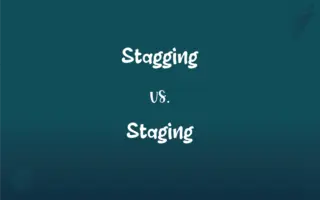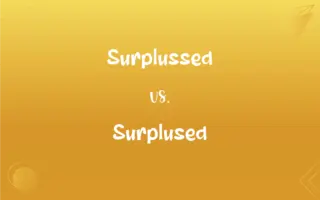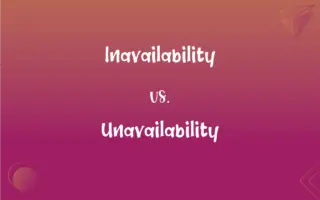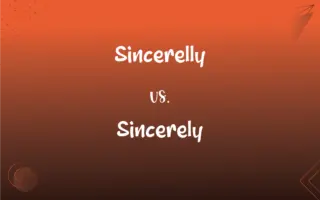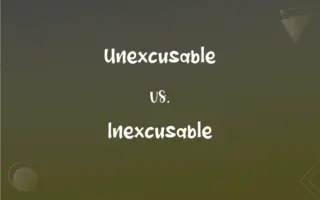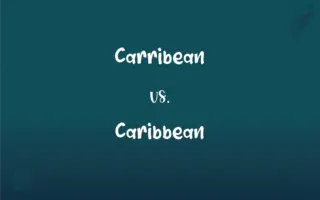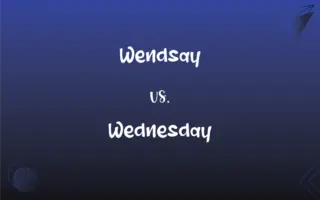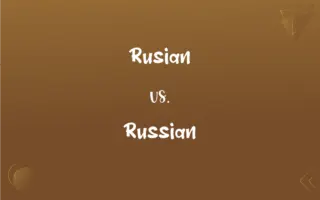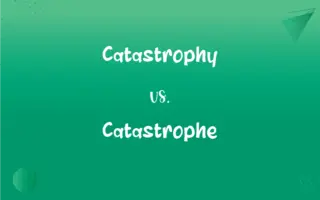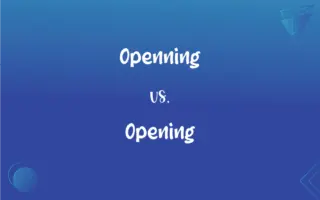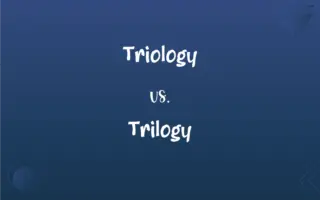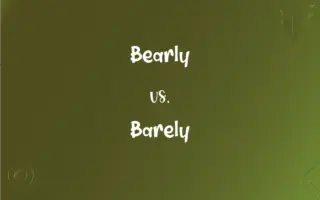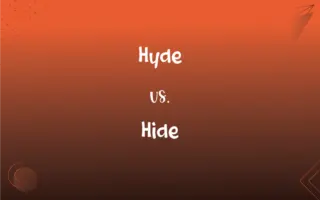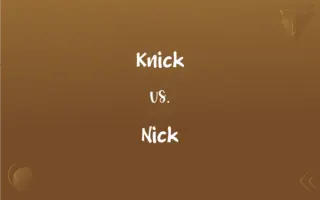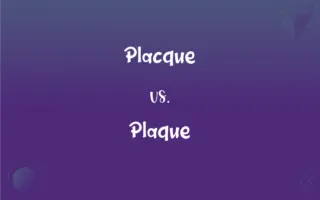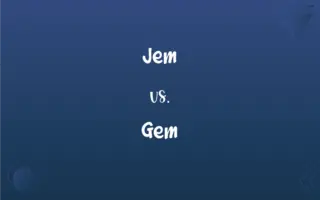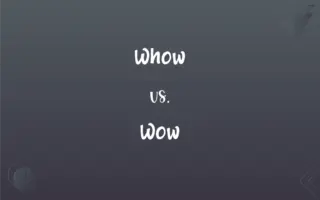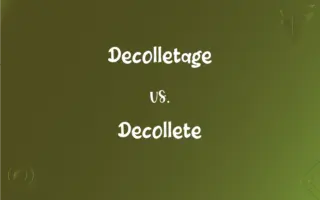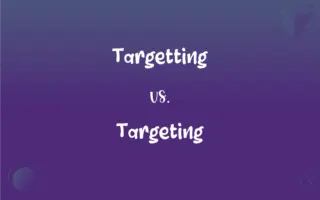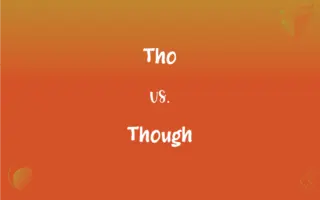Smily vs. Smiley: Mastering the Correct Spelling
Edited by Aimie Carlson || By Janet White || Updated on March 12, 2024
"Smily" is an incorrect spelling, while "Smiley" is the right one, representing a smiling facial expression or its representation.

Which is correct: Smily or Smiley
How to spell Smiley?

Smily is Incorrect

Smiley is Correct
ADVERTISEMENT
Key Differences
Think of the two "e"s in "Smiley" as two happy eyes in a smiling face.
"Y" alone isn't enough to express happiness, so add an "e" to make it complete!
Remember that “Smiley” has six letters, like the word "joyful".
Associate “Smiley” with “eye” as both end in “ey”.
Just like "happy" has two "p"s, "Smiley" has two "e"s.
ADVERTISEMENT
Correct usage of Smiley
She sent a smily face in her text message.
She sent a smiley face in her text message.
I like to use a wink smily when I'm joking.
I like to use a wink smiley when I'm joking.
The card had a big, yellow smily on it.
The card had a big, yellow smiley on it.
He always uses the same smily in his emails.
He always uses the same smiley in his emails.
Smiley Definitions
Smiley refers to a digital icon expressing emotion.
He sent a smiley emoji to show he was joking.
Smiley can mean someone characterized by frequent smiling.
John was always the smiley guy in the group
Smiley signifies a cheerful and happy demeanor.
He always had a smiley face in the morning.
Smiley is a representation of a smiling face, often using punctuation marks.
She ended her message with a smiley.
Smiley is a graphical emoticon used in electronic messages.
She inserted a smiley to lighten up the email.
An emoticon, especially a smiling facial glyph [ :-) ] used to express delight or to indicate humor or irony.
Having a cheerful and happy disposition; smiling.
Cheerful and happy; smiling.
Have a smiley demeanor
A very smiley girl
(slang) Having one's throat slit from side to side.
A simplified representation of a smiling face.
(Internet) A sequence of text characters used to represent a happy mood, especially :)]] or :-)]] or other depiction of smiling.
(rare) An improvised street weapon consisting of a length of chain with padlocks and other heavy objects affixed to one end.
(South Africa) A roasted sheep's head.
The type of piercing of the upper frenulum (upper lip).
An emoticon of a smiling face
Smiley Sentences
He has a collection of smiley face badges.
She wore a shirt with a smiley face on it to the party.
A smiley at the end of a sentence can change its whole meaning.
The app has a wide range of smiley stickers to choose from.
The invitation featured a big smiley face.
She ended her message with a smiley to show she was kidding.
Use a smiley to lighten the tone of your email.
A smiley face balloon was tied to each chair at the event.
The teacher put a smiley sticker on each student's good assignment.
He signed his letter with a hand-drawn smiley.
She put a smiley next to her name on the sign-up sheet.
The smiley emoji is my favorite way to express happiness in texts.
I received a card with a giant smiley on it for my birthday.
The smiley button brightened up her backpack.
He uses a smiley face signature in all his texts.
She collects vintage items featuring the classic smiley face.
Adding a smiley can make a text message seem more friendly.
He painted a smiley mural on the wall of his room.
Their logo includes a smiley to represent customer satisfaction.
The webpage has a smiley icon for positive feedback.
The welcome sign at the entrance had a big smiley drawn on it.
A smiley face pancake is her special breakfast treat for the kids.
Smiley Idioms & Phrases
Smiley disposition
A naturally happy and pleasant nature.
The new teacher's smiley disposition won over the students instantly.
Put on a smiley face
To adopt a happy or friendly expression.
Even when she's feeling down, she always puts on a smiley face for her students.
Smiley attitude
A cheerful and positive demeanor.
His smiley attitude makes him a joy to work with.
Wear your smiley
To display happiness or satisfaction openly.
After hearing the good news, she wore her smiley all day long.
Smiley moment
A situation that brings joy or happiness.
Seeing the dog play in the park was a real smiley moment.
A smiley outlook
An optimistic view of life.
Despite the challenges, she maintains a smiley outlook.
Catch a smiley
To become affected by someone else's happiness.
It's hard not to catch a smiley when you're around him.
Give a smiley
To offer a smile as a gesture of friendliness or approval.
She gave a smiley to everyone she passed on her walk.
Turn that frown into a smiley
To change from being sad to being happy.
Let's turn that frown into a smiley by going out for ice cream.
A smiley exchange
A friendly interaction marked by smiles.
We had a smiley exchange with the neighbors this morning.
FAQs
What is the verb form of Smiley?
Answer: There isn't a direct verb form of "Smiley." However, "smile" is the verb related to it.
Which vowel is used before Smiley?
Answer: The vowel "e" is used before the "y" in "Smiley."
What is the pronunciation of Smiley?
Answer: "Smiley" is pronounced as /ˈsmaɪli/.
Why is it called Smiley?
Answer: It's called "Smiley" because it represents or characterizes a smiling face.
What is the root word of Smiley?
Answer: The root word is "smile."
What is the plural form of Smiley?
Answer: The plural form is "Smileys."
Which article is used with Smiley?
Answer: Both "a" and "the" can be used with "Smiley" depending on the sentence.
Is Smiley a negative or positive word?
Answer: "Smiley" is a positive word.
What is the singular form of Smiley?
Answer: The singular form is "Smiley."
Which conjunction is used with Smiley?
Answer: Any conjunction can be used with "Smiley" based on context, such as "and," "but," or "or."
Is Smiley an abstract noun?
Answer: No, "Smiley" is a concrete noun when referring to the symbol and an adjective when describing someone/something.
How do we divide Smiley into syllables?
Answer: Smile-y.
What part of speech is Smiley?
Answer: "Smiley" can be both a noun and an adjective.
What is another term for Smiley?
Answer: Another term for "Smiley" is "emoticon" or "emoji."
What is the second form of Smiley?
Answer: "Smiley" doesn't have verb forms, so it doesn't have a second form.
Which preposition is used with Smiley?
Answer: Prepositions like "with," "of," and "for" can be used with "Smiley," depending on the context.
Is Smiley a countable noun?
Answer: Yes, you can have one smiley or several smileys.
Is the word Smiley imperative?
Answer: No, "Smiley" is not a verb, so it can't be used in the imperative mood.
Is Smiley a noun or adjective?
Answer: "Smiley" can be both a noun (referring to the symbol) and an adjective (describing someone or something as smiling or cheerful).
Is Smiley an adverb?
Answer: No, "Smiley" is not an adverb.
Is the Smiley term a metaphor?
Answer: Not inherently, but it can be used metaphorically in specific contexts.
Is Smiley a collective noun?
Answer: No, "Smiley" is not a collective noun.
How many syllables are in Smiley?
Answer: "Smiley" has two syllables.
What is the stressed syllable in Smiley?
Answer: The first syllable, "Smile," is stressed.
What is the opposite of Smiley?
Answer: The opposite of "Smiley" could be "frowny" or "sad face."
Is Smiley a vowel or consonant?
Answer: "Smiley" is a word that contains both vowels and consonants.
Which determiner is used with Smiley?
Answer: Determiners like "a," "the," "my," "his," "her," "its," "our," and "their" can be used with "Smiley."
What is the first form of Smiley?
Answer: The first form is "Smiley."
About Author
Written by
Janet WhiteJanet White has been an esteemed writer and blogger for Difference Wiki. Holding a Master's degree in Science and Medical Journalism from the prestigious Boston University, she has consistently demonstrated her expertise and passion for her field. When she's not immersed in her work, Janet relishes her time exercising, delving into a good book, and cherishing moments with friends and family.
Edited by
Aimie CarlsonAimie Carlson, holding a master's degree in English literature, is a fervent English language enthusiast. She lends her writing talents to Difference Wiki, a prominent website that specializes in comparisons, offering readers insightful analyses that both captivate and inform.


